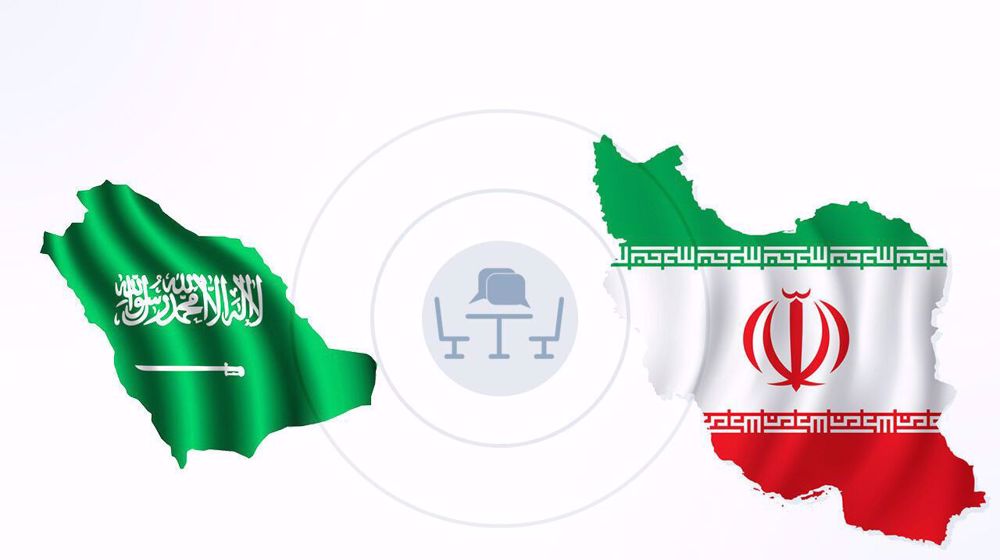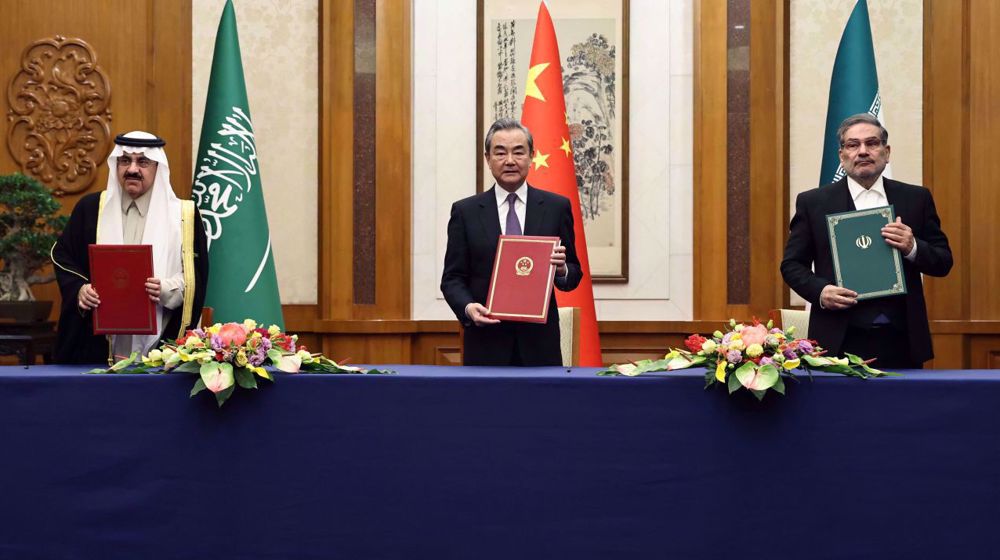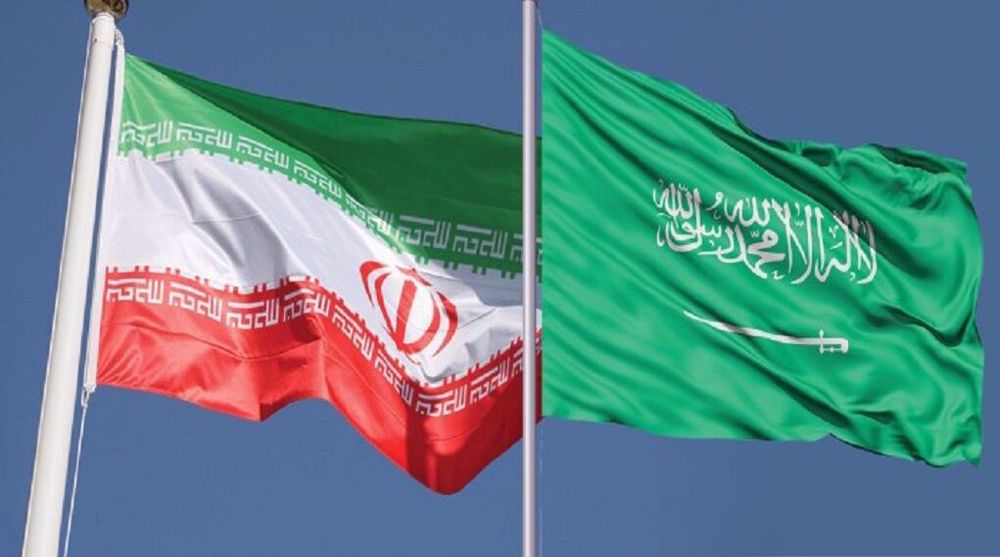Iran-Saudi détente causes high anxiety among Zionists: Analyst
The détente between Iran and Saudi Arabia will result in regional stability which is causing high anxiety among the Zionists, according to an American political commentator in Oregon.
But, Charles Dunaway added, “The biggest loser is the United States.”
He made the remarks in an interview with Press TV on Sunday after Iran and Saudi Arabia reached an agreement on Friday to restore diplomatic relations and re-open embassies in each other’s countries; seven years after ties were severed over several issues.
“The rapprochement between the Islamic Republic of Iran and the Kingdom of Saudi Arabia is indeed a major achievement of diplomacy,” said Dunaway.
“It underscores the difference between actual diplomacy where agreements can be reached between rivals and even enemies for the common good, and American foreign policy which consists solely of demands, threats and sanctions,” he stated.
“China is now the largest economy in the world and the largest market. It makes good business sense for nations in the region to improve their relations with China and work toward a stable environment that is conducive to business,” the commentator added.
“The ancient enmities between Iran and Saudi Arabia will not disappear overnight but re-establishing diplomatic relations is a positive first step,” he noted.
“Hopefully future diplomacy can smooth the most dangerous points of friction between the two. Among them is support for certain groups throughout West Asia. The Saudis have been important supporters of US-sponsored terrorist groups seeking to overthrow independent-minded governments and destabilize the region, often for the benefit of the Zionist entity. Iran has steadfastly supported resisting US regime-change efforts in Syria and elsewhere,” he said.
“The mere threat of regional stability is causing high anxiety among the Zionists. The timing is also fraught for the occupation regime in Tel Aviv. After months of increasing violent oppression of the Palestinian people, another Intifada is more likely than ever. The anti-corruption riots against the Netanyahu government leave it in a precarious position which appears more uncertain with the new Saudi-Iranian detente. Israeli politicians are already blaming the Netanyahu regime for this ‘dangerous development,’” Dunaway noted.
“The arrogance and incompetence of the US government have enabled the Chinese to assume a leadership role in the region. That can only serve to bring stability to those nations willing and able to set aside their longstanding differences and work toward peace and justice. It is welcome news not only in Tehran and Riyadh and Muscat, but in Beirut, Damascus, and Sana’a,” he observed.
“To have a superpower ally interested in collegial relations, trade, and development rather than one interested only in cheap resources, and military dominance provides a great promise for a peaceful and prosperous future for all those of goodwill. Only one regional government stands to lose from this deal, the regime occupying historic Palestine. The biggest loser is the United States,” he said.
“Having once again found itself in a military quagmire after interfering in Ukraine, with its political class clamoring to fight China, and with the influence of the US and its European allies diminishing in Africa, the US is unlikely to be able to reassert its status as the global hegemon. It will probably not stop trying, but history is marching on toward a multi-polar world. New possibilities are arising,” the analyst said.
“Can China bring more West Asian nations into its diplomatic orbit? Can more pressure be put upon the US to leave Syria? Can the situation in Yemen be resolved peacefully? Is it possible to establish a stable government in Lebanon? Can the US occupation of Iraq be brought to an end? There are no answers on the horizon, but we can at least begin asking these questions,” he concluded.
VIDEO | Press TV's News Headlines
President Yoon Suk Yeol to be removed from office
At least 19 Gazans killed by Israeli airstrikes since dawn: Medics
Leader: Iran neither has nor needs proxy forces
US fighter aircraft shot down ‘in friendly fire’ amid aggression on Yemen
Yemeni FM: Israel’s sponsors accountable for ongoing aggression on Sana’a
Eight Palestinians killed as Israel attacks Gaza school, hospitals
VIDEO | Rome, Milan host new protests in solidarity with Palestinians












 This makes it easy to access the Press TV website
This makes it easy to access the Press TV website